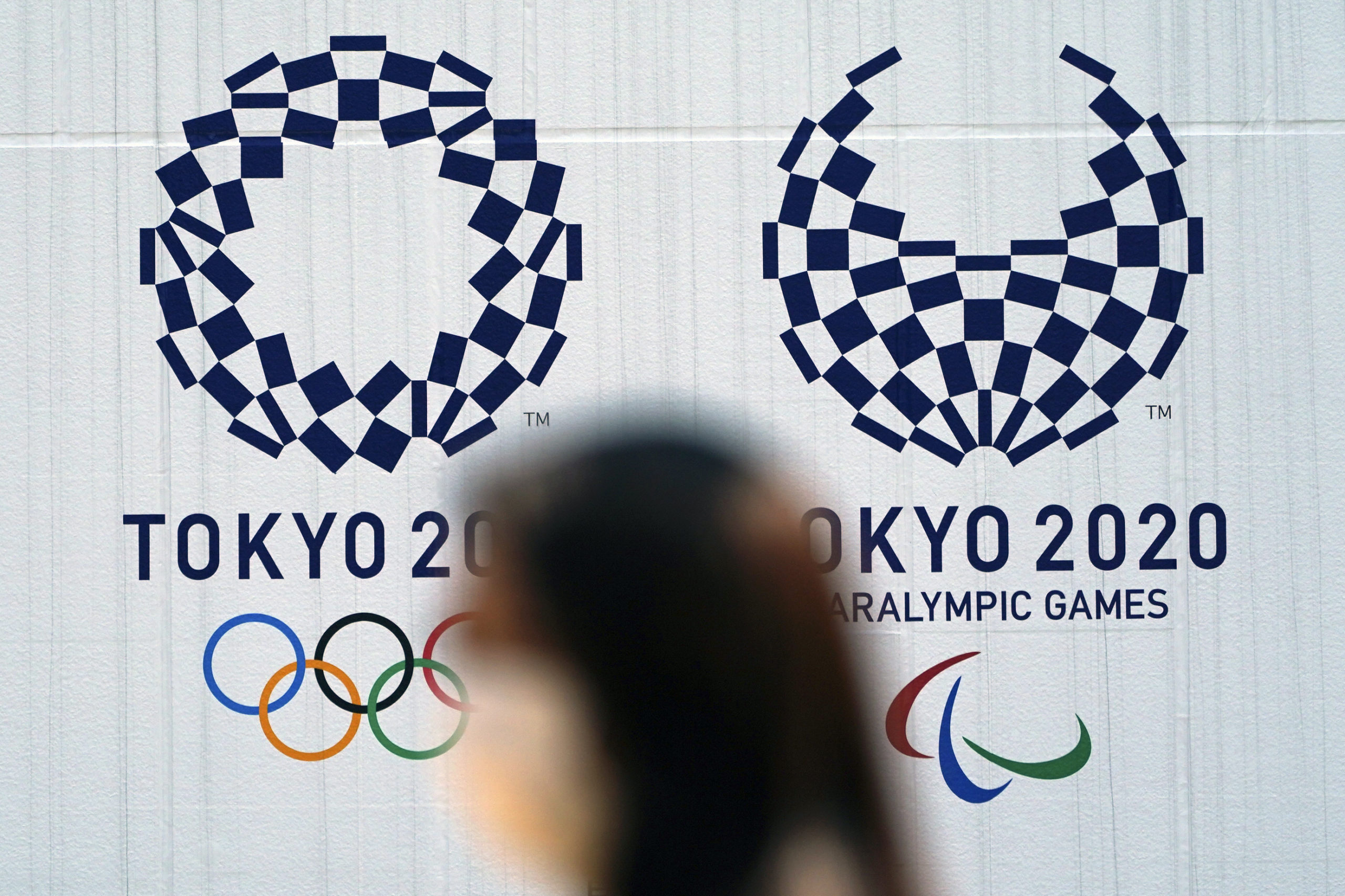
A woman wearing a protective face mask walks near the Tokyo 2020 Olympic and Paralympic Games Thursday, April 2, 2020, in Tokyo. The new coronavirus causes mild or moderate symptoms for most people, but for some, especially older adults and people with existing health problems, it can cause more severe illness or death. (AP Photo/Eugene Hoshiko)
GENEVA—Postponing the Tokyo Olympics to 2021 will make the event more costly for all parties, the International Olympic Committee acknowledged on Thursday, although it offered few details on what the final bill might be.
Four directors of the Olympic body held a conference call three days after Tokyo’s new dates were finalized, with the games pushed back to July 23-Aug. 8 next year because of the coronavirus pandemic.
While the new dates cleared up any uncertainty about the event’s future, there are still plenty of question marks as the IOC begins to work with Tokyo organizers and governing bodies of 33 sports in a huge task to amend thousands of contracts. They include agreements for 41 venues, an Olympic village of 5,000 apartments, hotels, transport, plus the supply of goods and services.
“All of this now has to be re-secured for one year later,” said Christophe Dubi, the IOC’s Olympic Games executive director. “There will be costs for (Tokyo local organizers) and the IOC and Olympic family side.”
The estimations for how much it will cost to postpone the games have started at $2 billion and gone much higher. Japanese taxpayers are expected to meet most of it, adding to their share of an official budget of $12.6 billion.
The IOC was contributing $1.3 billion to Tokyo’s original operating budget.
Asked if the Switzerland-based Olympic body would meet some of the extra costs from its own insurance policy or billion-dollar reserve fund, the official line Thursday was that it’s too early to say.
It was also unclear how the payments from broadcasters will be structured.
“We’re only just getting into all of this,” said Timo Lumme, the managing director of television and marketing.
Broadcasters including NBC contributed 73% of the IOC’s $5.7 billion income from the previous four-year cycle up to the 2016 Rio de Janeiro Olympics. Of that, $540 went to the governing bodies of the 28 core Summer Games sports.
That figure is expected to go up for Tokyo, but it’s still unclear when the governing bodies will get IOC payments from their share of those revenues.
The IOC has not committed to paying 25% of that money in advance in 2020 in 2020 to ease the governing bodies’ cash flow. Many face extra costs for Tokyo while also having to cancel revenue-earning world championships and other international events.
“They’ll get to 2021, but in what condition?” said Francesco Ricci Bitti, head of the group of Summer Games sports known as ASOIF, this week. He told The Associated Press that “15 to 20 are very dependent on Olympics funding.”
One Tokyo Olympics decision could come within two weeks, sports director Kit McConnell suggested. The IOC will have talks with FIFA about raising the age limit in men’s soccer from 23 to 24 to account for the one-year delay.
Hundreds of potential Olympic athletes who get IOC funding for their training are getting one-year extensions to their scholarships.
The IOC has yet to reschedule its annual meeting that was set for Tokyo in July — or a presidential election that is scheduled for June 2021 in Athens, Greece. That is now just one month before the start of the Tokyo games.